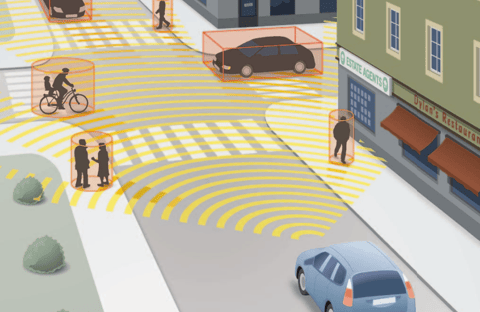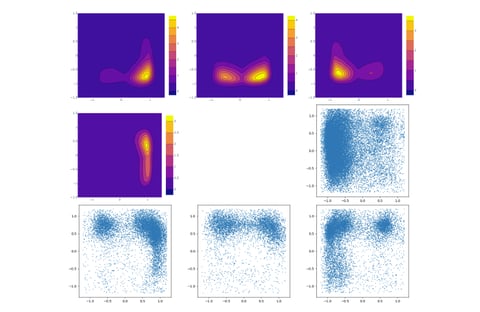innovation is a thought away
Deep Extended Measurement Models for Automotive Applications
Autonomous driving systems heavily depend on accurately understanding their surroundings, which includes tracking other vehicles using sensor data. High-performing multi-object tracking relies on precise measurement models that describe how sensor measurements are generated. Traditionally, these models are handcrafted, requiring extensive expertise, significant time for tuning, and often rely on simplifying assumptions.
An alternative approach gaining traction is learning measurement models directly from data. With the increasing availability of data in the autonomous driving domain, this data-driven approach has become feasible. Such models can potentially generalize better than handcrafted ones, as they rely on fewer assumptions about sensors and objects.
This thesis investigates learning measurement models using parametric Gaussian mixture models and energy-based models. These models are evaluated on trajectory data from the NuScenes dataset, using metrics that assess their performance across diverse scenarios. Results show that energy-based models, which offer greater flexibility and use less-condensed object state information, perform as well as or better than the established Variational Radar Model when integrated into a multi-object tracking particle filter. This demonstrates that energy-based models are a viable option for representing measurement models in autonomous systems.
Master Thesis in Science at Chalmers University of Technology
Results
Autonomous driving and assist systems rely on high performance to ensure safe and efficient navigation. A key component of these systems is the object tracking algorithm, which updates the vehicle's understanding of its surroundings. Traditionally, object tracking is addressed using model-based Bayesian filtering, though recent efforts have explored learning parts of these models from data.
This thesis focuses on learning the measurement model—a critical part of the Bayesian filter—using Gaussian Mixture Models and Energy-Based Models. The measurement model is designed based on the assumption that measurements are generated as a Poisson Point Process, with the intensity function and rate modeled accordingly.
The best-performing model was integrated into a particle filter and evaluated against a well-established Variational Gaussian Mixture model. Performance was assessed on specific scenes from the NuScenes dataset, where the models were trained. Results showed that the proposed model performed comparably to its competitor within the tested filter, demonstrating strong potential. However, further testing with different filters and broader datasets is necessary for comprehensive validation. Overall, the findings highlight the promise of learning measurement models using flexible Energy-Based Models as an alternative to traditional and parametric approaches.




